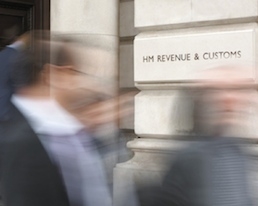Inheritance tax (IHT) receipts for April to August rose 12% year on year to £2.9bn, according to new data this morning from HMRC.
This is a £300m increase on the same five month period last year.
IHT is paid at 40% on assets valued above the £325,000 threshold.
Currently around one in every 25 estates pays IHT as inflation and house price increases take more estates over the threshold.
The threshold has been frozen at its current level since 2010.
Shaun Moore, tax and Financial Planning expert at Quilter, said that IHT is no longer a problem just for the very wealthy.
He said: “In years gone by, although universally hated, IHT was something only the very wealthy suffered.
“However, now partly because of soaring property prices more and more people are getting caught in the IHT net. The fact the Nil Rate Band and the Residence Nil Rate Band will remain frozen until 2026 does not help either. Many families particularly in the southeast that might not class themselves as wealthy will have to pay IHT just because their properties have increased so much in value.”
Julia Rosenbloom, tax partner and Financial Planning and wealth management firm Evelyn Partners, said families must consider tax planning as part of their regular Financial Planning.
She said: “While the outlook for IHT is uncertain, more families are already being pushed into its scope given frozen allowances and rising house prices – even before any possible changes are made by the new Truss administration. The nil rate band and residence nil rate band which have been frozen until at least April 2026 are pushing IHT receipts upwards, so people should give careful thought to their tax planning to help minimise the chances of being hit by a hefty IHT bill.
“Families should regularly review their tax planning and take a close look at the allowances available to them to ensure they don’t end up paying more tax than they need to. By considering tax planning strategies such as making gifts to family members or investing tax-efficiently there are a number of legitimate ways families may be able to reduce or eliminate their IHT bills.”
Alex Davies, CEO and founder of Wealth Club, said that whilst IHT reform may be on the agenda for the new government changes should not be expected soon.
He said: “The new PM has stated that she would review inheritance tax rules if she came into power. But it’s hard to imagine IHT is top of the to-do list for Friday’s Mini budget, especially with so many more pressing issues at hand. The tax is a vital cash cow for the Treasury, and the extra £300 million collected in the last four months is certainly needed.
“Nonetheless, there are a few reforms the government might consider. Scrapping the tax altogether seems unlikely, but cutting the 40% rate or increasing the threshold which has been frozen since 2010 at £325,000 would all be welcome changes.”

